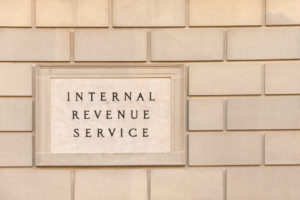Types of Financial Fraud
A SEC whistleblower attorney deals with a dizzying array of laws and regulations that apply to the financial sector. Government agencies, such as the U.S. Securities and Exchange Commission (SEC), the Commodity Futures Trading Commission (CFTC), and the Internal Revenue Service (IRS) enforce these laws and regulations.

Since it would be impossible for these government agencies to catch all violations of these laws and regulations, the financial fraud whistleblower programs are especially important. These include the SEC Whistleblower Program, the CFTC Whistleblower Program, and the IRS Whistleblower Program.
For more information or to speak with a financial fraud attorney, contact Bracker & Marcus LLC.
THE SEC WHISTLEBLOWER PROGRAM
What is the SEC Whistleblower Program?
Congress enacted the Dodd-Frank Wall Street Reform and Consumer Protection Act (also known as “Dodd-Frank”) on July 21, 2010. One of the most critical reforms that arose from this new legislation was the launch of the SEC’s Dodd-Frank Whistleblower Program (commonly referred to as the “SEC Whistleblower Program”) in the summer of 2011.
The program allows whistleblowers to receive an award when they voluntarily provide original information that leads to a successful enforcement action.
Unlike the False Claims Act, SEC Whistleblower claims are filed directly with the SEC; there is no federal lawsuit. This also means that the whistleblower does not have a right to pursue the claims in a qui tam filing if the SEC decides not to do so itself.
Although whistleblowers are often portrayed as people with inside information about a company’s wrongdoing, being a company “insider” is not an SEC whistleblower requirement. In fact, the SEC itself has acknowledged that “outsider” whistleblowers who provide the SEC with critical intelligence that uncovers fraud can also receive rewards under the program.
Successful SEC enforcement actions can result in whistleblower awards ranging from 10-30% of the money collected as sanctions in the enforcement action, as long as those sanctions exceed $1 million.
Also unlike the False Claims Act, the SEC whistleblower program allows whistleblowers to file anonymously and endeavors to keep whistleblowers’ identities secret from the public.
There are several ways that the SEC whistleblower program protects its whistleblowers. First, the program allows whistleblowers to report what they witnessed anonymously, with their SEC whistleblower lawyers communicating with the SEC on their behalf, so that even the SEC is not aware of the identity of the whistleblower. Although an SEC whistleblower can initially remain anonymous even to the SEC, it will have to reveal its identity to the SEC in order to receive an award. However, the SEC will continue to maintain the whistleblower’s confidentiality to the public.
Second, the program requires that the SEC keep confidential (with some exceptions) anything that they could reasonably expect would identify the whistleblower.
Third, if an employer does learn of a whistleblower’s identity, both the Dodd-Frank Act and the Sarbanes-Oxley Act create causes of action for whistleblowers against employers who retaliate against them.
Moreover, it is illegal for employers to request language in severance, settlement, or release language that “gags” current or former employees from being able to report issues to the SEC or to receive an award for doing so. An employer who includes such language may be severely sanctioned by the SEC, including being subject to monetary penalties.
Time is of the essence when filing an SEC Whistleblower claim.
While you certainly want to be first to report a claim under any whistleblower program, acting quickly is particularly important under the SEC Whistleblower program.
For one thing, the SEC considers how quickly you reported the fraud as part of determining the size of the reward. It may even reduce the award if it determines there was an “unreasonable delay” in reporting.
Most whistleblowers report their concerns internally prior to considering reporting to the SEC. The SEC wants you to do this, and will even increase your reward if you tried to rectify the situation internally before getting the SEC involved. For this reason, any submission made to the SEC within 120 days of your internal report will be back-dated to that date, giving you the opportunity to utilize the internal reporting mechanisms and saving your place in line. But if you wait longer than 120 days, you lose this valuable benefit, so it is a good idea to hire counsel before reporting so that you are ready to file before the 120 days are up.
What types of fraud are covered by the SEC Whistleblower Program?
The SEC whistleblower program covers the full range of securities fraud which is, essentially, when publicly-traded companies deceive the investing public. Some types of fraud that whistleblowers can report that may lead to SEC enforcement actions include:
Financial statement fraud: This is when companies misrepresent financial information that is communicated to the public, including through press releases, reports (such as Forms 8-K, 10-Q, 10-K), and analyst conference calls.
The most common type of financial statement fraud is improper revenue recognition such as fictitious revenue reporting, revenue timing, and improperly deferred earned revenue schemes. When someone suspects or witnesses this behavior, the best course of action is to contact a financial fraud attorney right away.
Insider trading: This is when someone learns of non-public information concerning a particular company (often by a company insider) and then buys and/or sells securities based on that non-public information.
Well-known insider trading cases include those that were brought against Martha Stewart, Enron CEO Jeff Skilling, and Steve Cohen’s SAC Capital.
Market manipulation: This is when companies attempt to evade the strict rules governing securities trading by engaging in trading violations such as pump and dump schemes, front running, and spoofing and layering.

Ponzi schemes: Named after notorious fraudster Charles Ponzi, those perpetuating “Ponzi schemes” dupe investors into parting with their money with the promise of high returns. What usually happens is that the fraudsters simply use the new investors’ money to pay existing investors to create the illusion of a real investment. Bernie Madoff, for example, ran the largest Ponzi scheme in history, a $65 billion scam that in many ways was the impetus for the SEC Whistleblower Program.
Foreign Corrupt Practices Act Violations: The Foreign Corrupt Practices Act (FCPA) bans bribes to foreign officials to assist in obtaining or retaining business. Even an offer to make a bribe is enough to violate the FCPA.
The FCPA also requires companies who list their securities in the United States to (a) keep books and records that accurately and fairly reflect the company’s transactions and (b) maintain an adequate system of internal accounting controls.
THE CFTC WHISTLEBLOWER PROGRAM
The CFTC is an independent government agency that derives its regulatory authority from the Commodity Exchange Act (CEA). The CFTC protects the public from fraud, manipulation, and abusive practices related to the sale of commodity and financial futures and options.
The commodities futures markets began with agricultural commodities and expanded into “designated contract markets” for metal (such as gold), fuel (such as oil), and financial commodities. After the unregulated use of credit default swaps contributed to the 2008 financial crisis, the Dodd-Frank Act expanded the CFTC’s regulatory authority to oversee the more than $400 trillion swaps market.
The Dodd-Frank Act also created the CFTC Whistleblower Program which:
- Pays awards to eligible whistleblowers who voluntarily provide the CFTC with original information about CEA violations that result in a CFTC enforcement action with monetary sanctions exceeding $1,000,000.
- Entitles whistleblowers to between 10% and 30% of the amount of monetary sanctions collected in the CFTC’s enforcement action or a Related Action.
- Allows whistleblowers from outside the U.S. to participate in the program and conduct that occurred outside of the U.S. to be the subject of an enforcement action.
- Gives whistleblowers certain protections regarding the confidentiality of their identity.
- Provides whistleblowers whose employers have retaliated the right to sue in federal court with assistance from a financial fraud attorney. Importantly, the CEA provides the CFTC the authority to enforce the anti-retaliation provisions itself by filing an enforcement action against an offending employer.
CEA violations that are covered by the CFTC Whistleblower Program include:
- Fraud, such as fraudulent solicitation and misappropriation of customer funds.
- Market manipulation, including attempted market manipulation and disruptive trading practices.
- Trade practice violations, such as fictitious sales and unauthorized swap transactions.
THE IRS WHISTLEBLOWER PROGRAM
The IRS Whistleblower Program is the only federal forum for tax fraud whistleblowing because the Federal False Claims Act does not permit these claims (although some state and municipal False Claims Acts do, such as New York and Washington, D.C.).

Although a tax whistleblower provision of sorts began in 1867, it did not gain much traction as it lacked any kind of mandatory whistleblower reward. In 2006, the program underwent a much-needed overhaul when the Tax Relief and Health Care Act created a dedicated IRS Whistleblower Office and amended the Revenue Code to require payment of whistleblower awards in qualifying cases, making it valuable to whistleblowers who report individuals and corporations that are cheating on their taxes.
Unlike the False Claims Act, IRS Whistleblower claims are filed directly with the IRS; there is no federal lawsuit, although there is still assistance available from IRS whistleblower lawyers. The whistleblower does not have a right to pursue the claims in a qui tam filing if the IRS decides not to do so itself.
Qualifying cases, brought under the IRS’s Section 7623(b) program, are those where the total disputed tax amount exceeds $2,000,000 (including penalties and interest) and, if an individual is the subject of the whistleblowing, that individual’s gross income for a year in dispute exceeds $200,000. IRS whistleblowers that bring qualifying cases to the government’s attention are paid between 15 and 30 percent of the collected proceeds in those cases.
For smaller cases where the monetary thresholds are not met, a whistleblower may still file a claim under the IRS’s Section 7623(a) program. However, these awards are discretionary, so a whistleblower may not receive any amount even for a successful tip. Moreover, the awards are capped at 15%, up to $10 million.
The IRS has made clear, however, that these rewards are for solid information from the whistleblower, not an “educated guess” or unsupported speculation. In addition, whistleblowers who provide the IRS with allegations principally based on publicly available information are only entitled to a discretionary award of up to 10% of the collected proceeds that cannot be challenged in court.
Also unlike the False Claims Act, the IRS protects the identity of the whistleblower to the full extent of the law. However, in some cases, such as if the whistleblower is an essential witness in a judicial proceeding, the whistleblower’s identity may be revealed if the IRS deems it to be necessary to continue pursuing the investigation.
Examples of tax fraud covered by the IRS Whistleblower Program include:
- Failure to pay taxes (such as by underreporting or omitting income)
- Claiming false tax exemptions or deductions
- Submitting false or altered tax documents
- Failing to withhold proper tax amounts
The Anti-Money Laundering Act (AMLA)
Prior to 2021, 31 U.S.C. § 5323 offered a discretionary reward for whistleblowers with original information about money laundering that leads to a recovery of a criminal fine, penalty, or forfeiture. Not only was the reward discretionary, but the amount of the reward was discretionary. Moreover, it was limited to 25% of the net recovery or $150,000, whichever is less.
Needless to say, few in a position to spot money laundering, primarily bankers, were willing to risk sacrificing their careers for a maximum reward of $150,000 they might not even be offered. And so Congress, seeing the success of the SEC Whistleblower Program, amended the statute to promote whistleblowing.
A new statute instructs the Department of the Treasury to reward whistleblowers with original information up to 30% of any recovery exceeding $1,000,000. However, this amount excludes forfeiture, restitution, and victim compensation payments.
The determination of the amount is still discretionary, but the Secretary of the Treasury is instructed to consider:
- the significance of the information provided by the whistleblower to the success of the action;
- the degree of assistance provided by the whistleblower and their legal counsel;
- the programmatic interest of the Department of the Treasury in deterring violations by making awards to whistleblowers who provide information that leads to the successful enforcement; and
- such additional relevant factors as the Secretary, in consultation with the Attorney General, may establish by rule or regulation.
Original information essentially means two things. First, it cannot already be known to the Department of the Treasury or Attorney General before reporting. Second, the information cannot be exclusively derived from publicly available information.
However, it is not as draconian a “first-to-file” statute as the False Claims Act. Ultimately, when there is a recovery, the Treasury is to take a pot of money and divide it between the different whistleblowers based on these considerations. A later filer who brings new information may thus be entitled to some reward.
Whistleblowers are permitted to report violations anonymously and still qualify for a reward, but only if they are represented by counsel. However, prior to the payment of an award, their identity must be disclosed to the Treasury to ensure they are eligible for a reward. This mirrors the anonymity provision in the SEC Whistleblower program.
An unusual twist to the AMLA program is that a whistleblower is not just someone who reports the fraud to the government, but also to any individual or group of individuals who provide the information to their employer, including as part of their job duties.
For example, bank employees whose employer reports the money laundering to the government may be individually eligible for a reward from any resulting enforcement action. These provisions have yet to be ironed out, however.
AMLA also includes anti-retaliation provisions for whistleblowers. No employer may, directly or indirectly, discharge, demote, suspend, threaten, blacklist, harass, or in any other manner discriminate against a whistleblower in the terms and conditions of employment or post-employment because of any lawful act done by the whistleblower to report violations they reasonably believe to be occurring, internally or to the Government.
Someone who believes they have been retaliated against in violation of this statute files a complaint with the Department of Labor, and if it has failed to issue a final decision within 180 days, they may file an action in federal court.
